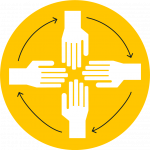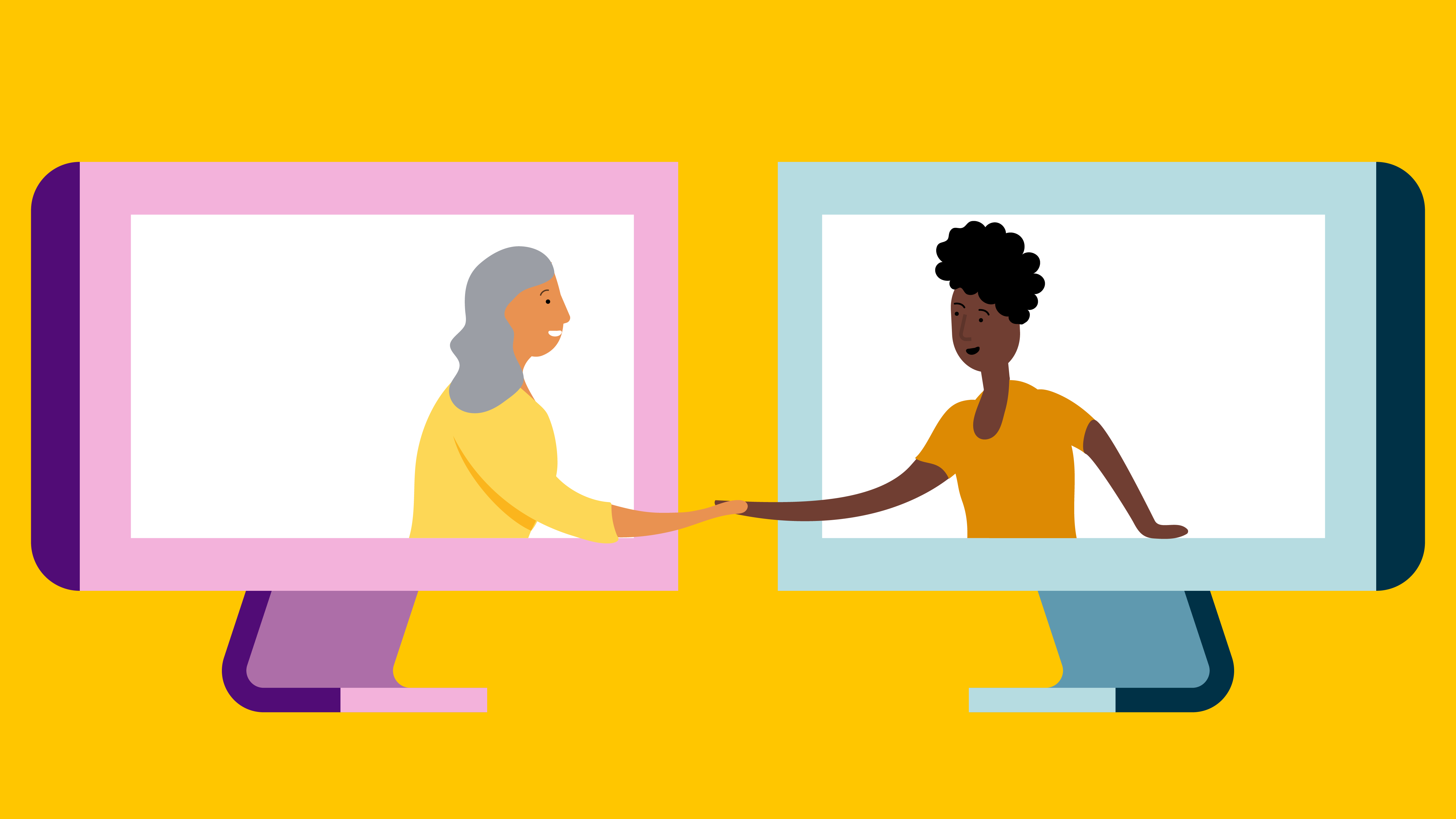How much do you trust your coworkers? According to experts, our prolonged run of predominantly remote work is eroding our trust between team members. Fortunately, we can counter this with reliable tools, practices, and mindsets that cultivate trust.
You’ve likely noticed a lack of trust building up amongst your team with the shift to remote collaboration.
While trust is widely regarded as foundational to any high-performing team, writes Patrick Lencioni in The Five Dysfunctions of a Team, it can be easily overlooked or not talked about openly.
That’s why the BBC’s “Why remote work has eroded trust among colleagues” is such a relevant and timely reminder about the importance of building and maintaining trust.
Trust as a Bank Account
Problem is, trust is complex and often takes time to build up—even when we are face to face.
Consider Stephen Covey’s “emotional bank account” analogy from The 7 Habits of Highly Effective People.

Imagine you have a separate trust “bank account” with each person on your team.
When you are starting out, the account has a zero balance. Trust-building behaviors are deposits and trust-eroding behaviors are withdrawals.
As with any bank account, it takes time to build up savings. Once you get there, it’s easier to let little things slide because the overall trend is positive.
Before COVID, you may have built up healthy trust savings accounts through face-to-face interactions with your colleagues.
But it’s dangerous to assume those trust balances roll over into today’s remote team environment.
Distance Can Breed Mistrust
That’s because misunderstandings are more likely to arise with remote-only collaboration. With remote work, we are unable to pick up on some important body language cues. We can also lose visibility into team productivity.
As a result, we see a lot of Fundamental Attribution Errors (FAEs), or the tendency to attribute others’ behaviors to their character, not their situation.
An example from the BBC article: If you are late for a meeting while working from home, it’s because your broadband wasn’t working. But if anyone else misses a meeting, you attribute it to their character.
It’s as if the bank account you had built up over time with each of your colleagues has been wiped out, and you are starting over again with a zero balance.
Trust-Building is Not One Size Fits All
According to the BBC article, there are two types of trust: character (interpersonal) trust, which is based on integrity and motive/intent, and competence trust, which is based on demonstrated knowledge or expertise and proven results.
For most people, one type of trust carries more weight than the other.
For me, feeling that I can trust my colleague’s character tends to take precedence over their competence.
This doesn’t mean accountability is unimportant to me – it’s just not the first thing I look for as a sign of trustworthiness in others.
- Remember: What you see as a “trust deposit” may differ from what your colleagues see as a trust deposit.
To earn trust, you’ll want to accumulate both interpersonal and competence trust “points” because both are equally important on high-performing teams.
Tips for Building a Remote Culture of Trust
Building Character Trust

Practice Empathy
Start by assuming others mean well.
Use XPLANE’s Empathy Map Worksheet to consider what the remote work experience is like for each of your colleagues.
- Consider the underlying motivations of team members that influences how they function
- Change your mindset: Focus on how remote collaboration benefits the team, rather than on what’s been lost

Facilitate Virtual Team Building
- Use tools like Slack for casual team connections. At XPLANE, we post photos around a weekly theme—it’s a great way to connect on a more personal, fun level.
- Plan virtual “happy hour” type events to connect via video and talk about things outside of work.
- Invite humor into the team environment. This recent Fortune article highlights the link between humor and trust-building.
Building Competency Trust

Align on Ways of Working
Use XPLANE’s Ways of Working Worksheet to facilitate a team conversation around how you want to work and what you expect from one another. Gaining clarity and agreement on how to measure success facilitates accountability.

Enable Transparency
- Incorporate either daily or weekly “stand-ups,” where each person gives a quick update on their accomplishments since the last meeting and shares their focus for the day or week. This enhances trust-building because it leaves little room to question what others are working on.
- Leverage shared collaboration tools for visibility into team projects. MURAL has been an extremely effective tool for us at XPLANE.
Trust Builds Better Teams
Trust-building is a continuous process best done in small, incremental steps.
By diligently building trust—and extending it to others—you’ll enhance your and your team’s work productivity, happiness, and creativity.
As always, if you’d like to share your thoughts about this post or ask a question, don’t hesitate to contact us!
